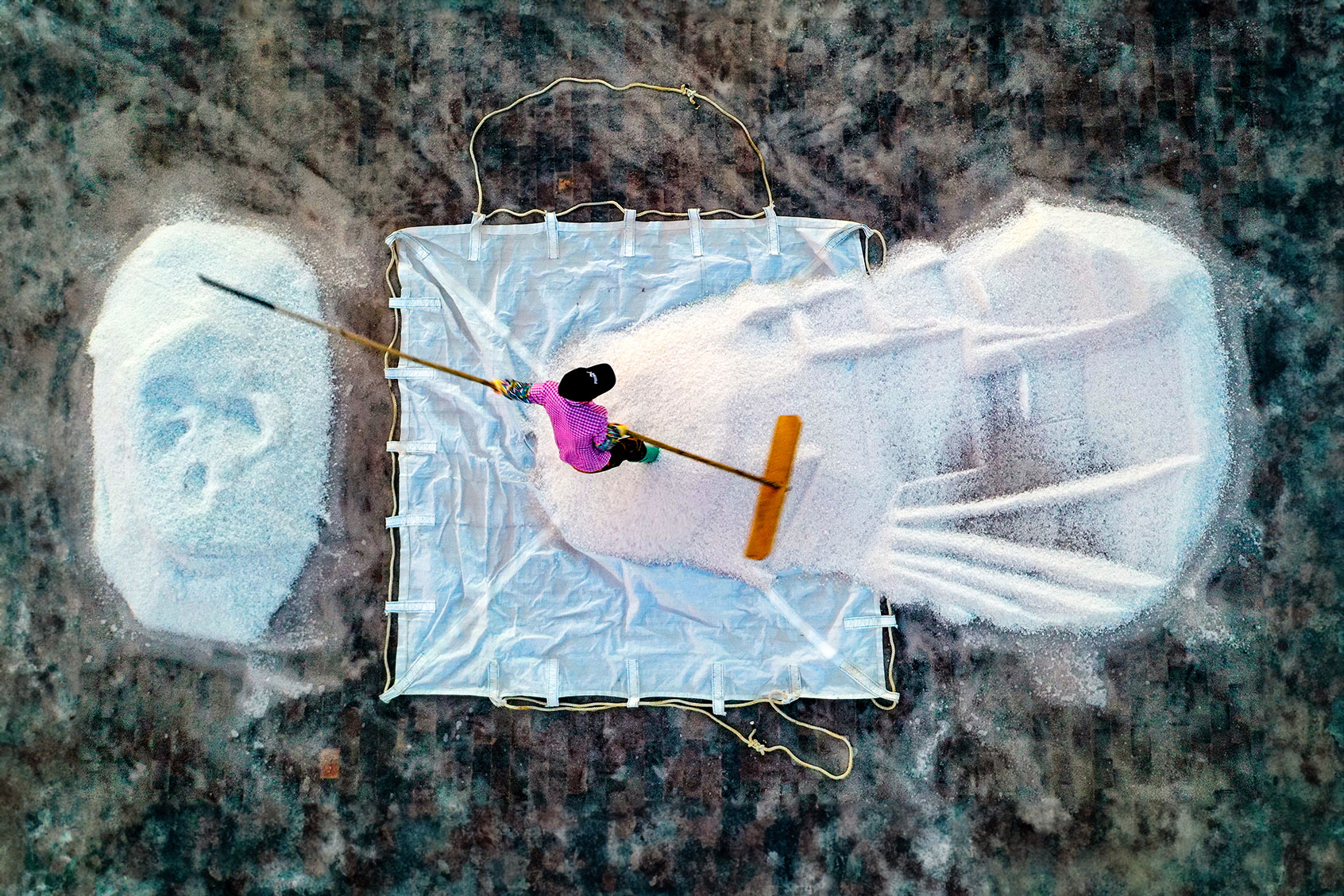It is not pleasant to imagine that human activity is making the planet uninhabitable, but we typically think of this in terms of greenhouse gases, rising sea levels or acidifying the oceans. We aren't typically concerned with how salty things are.
Yet a recent study published in the journal Nature Reviews Earth & Environment identifies a wealth of industrial activities from construction and agriculture to water and road treatment as making the planet Earth too salty — literally.
"There is a need to identify environmental limits … before planetary boundaries are exceeded, causing serious or irreversible damage across Earth systems."
"There is a need to identify environmental limits and thresholds for salt ions and reduce salinization before planetary boundaries are exceeded, causing serious or irreversible damage across Earth systems," the study authors report, arriving at their conclusion following a systematic review of existing studies on Earth's natural salt cycle and how it has been accelerated by human activities.
They warn of an “existential threat” that could lead to a problem known as freshwater salinization syndrome, or a condition in which traditionally un-salted water is suddenly filled with the stuff. Freshwater salinization syndrome can make the water uninhabitable to creatures that previously called it home and, similarly, render it unusable for human consumption.
“If you think of the planet as a living organism, when you accumulate so much salt it could affect the functioning of vital organs or ecosystems,” University of Maryland geology professor Sujay Kaushal, who holds a joint appointment in UMD’s Earth System Science Interdisciplinary Center, said in a press statement. “Removing salt from water is energy intensive and expensive, and the brine byproduct you end up with is saltier than ocean water and can’t be easily disposed of.”
This phenomenon was described by the authors as an "anthropogenic salt cycle" that is managing to supersede and hyper fuel nature's much slower salt cycle, during which salt ions are gradually brought to the surface by geological and hydrological processes. This is in stark contrast to humans forcing salts like calcium, potassium, magnesium and sulfate ions to the surface on a regular basis thanks to practices like mining and land development.
When most people think of salt, they tend to think of sodium chloride, the same stuff as table salt.
"But our work over the years has shown that we’ve disturbed other types of salts, including ones related to limestone, gypsum and calcium sulfate,” Kaushal said in the press statement. These salt ions are being dislodged in such large amounts that, according to the new study, human-caused salinization is affecting approximately 2.5 billion acres of soil around the world — an area roughly the size of the United States. And that only accounts for the land itself; salt ions also increased in rivers and streams over the last 50 years, which is consistent with global patterns in salt production and consumption.
Want more health and science stories in your inbox? Subscribe to Salon's weekly newsletter Lab Notes.
"It’s a cycle — from the deep Earth to the atmosphere — that’s been significantly perturbed by human activities.”
“Twenty years ago, all we had were case studies. We could say surface waters were salty here in New York or in Baltimore’s drinking water supply,” study co-author Gene Likens, an ecologist at the University of Connecticut and the Cary Institute of Ecosystem Studies, said in the press statement. “We now show that it’s a cycle — from the deep Earth to the atmosphere — that’s been significantly perturbed by human activities.”
When the study's authors refer to "planetary boundaries," they are utilizing a concept that has appeared in other academic literature. Earth has a number of physical limits that exist in terms of being able to support life, and scientists repeatedly warn that those planetary boundaries are in danger of being exceeded. A September study in the journal Science Advances demonstrated that humans are putting Earth in dangerous territory with six of its planetary boundaries. These include land system change, freshwater change, climate change, biosphere integrity, the flows of biological and geological chemicals and novel entities like plastics, pesticides and industrial chemicals.
We need your help to stay independent
"We can think of the Earth's resources as the currency that supports us," the study's lead author Dr. Katherine Richardson, professor in Biological Oceanography at the University of Copenhagen's Sustainability Science Centre told Salon at the time. "The planetary boundaries framework is like a bank statement — it tells us how much of various components (resources) of the Earth system we can allow ourselves to us without greatly increasing the risk that our activities will lead to dramatic and potentially irreversible changes in the overall environmental conditions we experience on Earth."
As humans continue to emit greenhouse gases into the atmosphere, they trap heat and cause our planet to unnaturally warm. This is why a recent study in the journal Proceedings of the National Academy of Sciences (PNAS) Ii global temperatures increase by at least 1 degree Celsius, temperatures will rise so much that billions of people will every year confront heat so intense their bodies will be unable to naturally cool themselves. This explains why climate change is such an important issue, but it's also far from the only one. Every resource we consume comes at a cost, and that include even simple things like salt.

